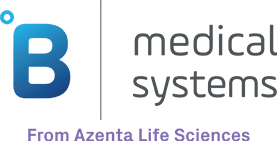Blog
Blood Transfusion Importance During Pregnancy and Birth: The Lifeline in Maternal Healthcare
Pregnancy and childbirth are critical moments in the life of a woman, marking the beginning of a new chapter in their lives with the arrival of a newborn. While most pregnancies and deliveries occur without significant complications, there are instances where the health of the mother, the baby, or both could be at risk. In such critical situations, blood transfusions can be a lifeline, ensuring the safety and well-being of both mother and child. It is for this reason that the role of proper blood management solutions cannot be overstated, as they are essential in maintaining the quality and availability of this life-saving resource.
The crucial role of blood transfusions
During pregnancy, a woman’s body undergoes numerous changes, including an increase in blood volume to support the growing foetus. However, complications such as severe anaemia, placental abruption, or postpartum haemorrhage (PPH) can require blood transfusions: severe anaemia can compromise the oxygen-carrying capacity of the blood, placental abruption can lead to significant blood loss and PPH, one of the leading causes of maternal mortality globally, involves excessive bleeding after childbirth.
Blood transfusions during these critical times can be lifesaving, replenishing lost blood and restoring haemoglobin levels to ensure adequate oxygen delivery to vital organs and the foetus. In cases of Rh incompatibility – a condition where the mother’s and baby’s blood types do not match – blood transfusions can also play a crucial role in managing and preventing haemolytic disease of the newborn.
The importance of blood management solutions

The availability of safe and compatible blood is paramount during emergencies. This is where effective blood management solutions and practices come into play. Blood management encompasses a range of practices aimed at ensuring the efficient use, storage, and preservation of blood and blood products. It involves rigorous testing for infectious diseases, proper blood type matching, and the use of preservatives and refrigeration to extend the shelf life of blood products.
Advanced blood management practices also include the implementation of blood conservation strategies, such as autologous blood donation (where patients donate blood for their own future use) and intraoperative blood salvage. These practices not only reduce the reliance on donor blood but also minimize the risks associated with transfusions, such as infections and transfusion reactions.
The vital link between blood donation and maternal health
The backbone of effective blood transfusion services during pregnancy and birth lies in the willingness of individuals to donate blood. Regular blood donations are essential to maintain an adequate supply of all blood types, ensuring that the right type of blood is available when needed. Public awareness campaigns and community engagement are crucial in encouraging blood donation, highlighting its significance in saving lives, particularly in maternal and neonatal care.
It is also for this reason that we at B Medical Systems regularly advocate for everyone to donate blood when possible. This simple action can save up to three lives, highlighting the importance of this form of solidarity.
Conclusion
Blood transfusions play a critical role in managing complications during pregnancy and childbirth, offering a lifeline in situations where the lives of the mother and baby are at stake. The integration of proper blood management solutions ensures the safe and efficient use of this precious resource, enhancing the overall safety and effectiveness of maternal healthcare. As we advance, the continued focus on innovative blood management practices, coupled with the promotion of blood donation, will remain pivotal in improving maternal and neonatal outcomes worldwide. Together, we can make a difference in ensuring that every pregnancy and childbirth is safe, supported by the life-saving power of blood transfusions and the robust infrastructure of blood management systems.




